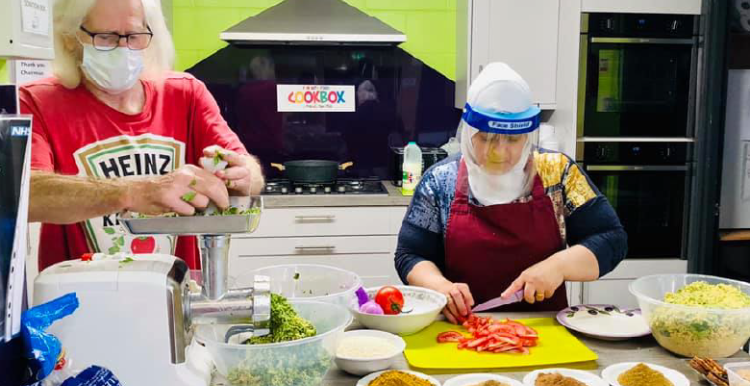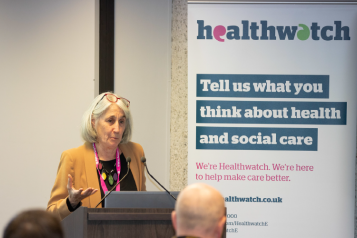Exploring the link between mental health and diet

Hi Richie, your university course links nutrition to mental health, can you tell us more about that link?
Throughout the gastrointestinal tract (that is basically the tube that runs from your mouth to where you use the bathroom) there are millions of nerves connected to the brain that continuously send and receive messages, this ‘enteric nervous system’ is colloquially referred to as the second brain!
Don’t be put-off by the scientific lingo; if you’ve ever felt more alert after your morning coffee, felt distracted because you were hungry, or felt sleepy after a hefty meal, then you’ve already consciously experienced how diet can change your mental state. It’s also a two-way street, with the nervous feeling of ‘butterflies’ in the stomach being an example of a gastrointestinal response triggered by emotions.
Some evidence also suggests that a healthy ‘gut microbiome’ (the living ecosystem in your large intestine) can improve emotional wellbeing and lower the risk of depression and other psychological issues, although a clear cause and effect relationship has yet to be established. You can build your microbiota, the beneficial bacteria, by consuming yogurts that contain probiotics, and you can feed them by consuming fibre-rich foods like fruit and vegetables.
What other foods should we eat to support our mental wellbeing?
The Eatwell Guide booklet produced by Public Health England is a comprehensive resource that provides information on how to eat healthily and sustainably, here I’ll outline a few foods that could be beneficial to your mental health specifically.
Your brain demands around 20% of your body’s total energy requirement, so you have to keep it fuelled! Glucose a key component of this energy and you can source it from complex carbohydrates like wholegrain bread or pasta which will create a longer lasting supply of mental and physical energy.
In contrast, the simple sugars in sweets and sugary drinks tend to spike your blood-glucose level up and then down, which can leave you feeling fatigued.
Getting some ‘good fats’ into your diet is also beneficial for brain development and maintenance. Omega-3 and 6 are examples of those essential fatty acids, with oily fish like herring, salmon and sardines being exceptional sources, with walnuts, avocados, and olive oil serving as fine plant-based sources.
The body breaks down protein into essential amino acids which are needed to make neurotransmitters like serotonin and dopamine. These transmit chemical messages and are known to influence overall mood, sleep cycles and pleasure sensations. Meat, eggs and dairy are classic sources of protein, but the right combination of nuts, pulses, and legumes can combine to provide you with all the essential amino acids you need whilst likely reducing your environmental impact, something else to feel great about!
How could someone build this into their routine, and what resources are available?
Whilst it’s important to eat healthily and sustainably, it’s also important to derive pleasure from what you eat and to create a healthy relationship with food, so do what you can implement changes gradually, and treat yourself from time-to-time!
The Friendly Food Club (FFC) are a non-profit organisation based in Dorset who run fun, free and informal cooking workshops with all kinds of people. They aim to build confidence in healthy, sustainable, and affordable lifestyles with an emphasis on skills, knowledge, and social bonds related to the acquisition, preparation, and eating of food! As a consequence of the ongoing pandemic the FFC have innovated by taking their workshops into the family kitchen via a ‘Cookbox’ scheme which involves the delivery of ingredients, recipes, and educational materials.
There are plenty of free, reliable, evidence-based resources available on the NHS website including sections on diet, digestive health, top tips and recipes.
There is also a mental health services section if you are concerned about your own mental health, that of others, or just want to find out more.
We would like to thank Richie (who is studying a Masters in Nutrition and Behaviour at Bournemouth University), for taking the time to help educate our blog readers of the link between mental health and nutrition, and how we can take steps to improve our wellbeing this way.


